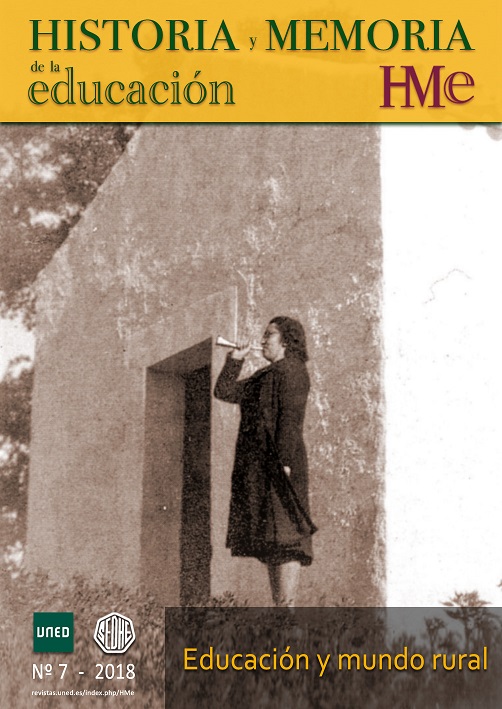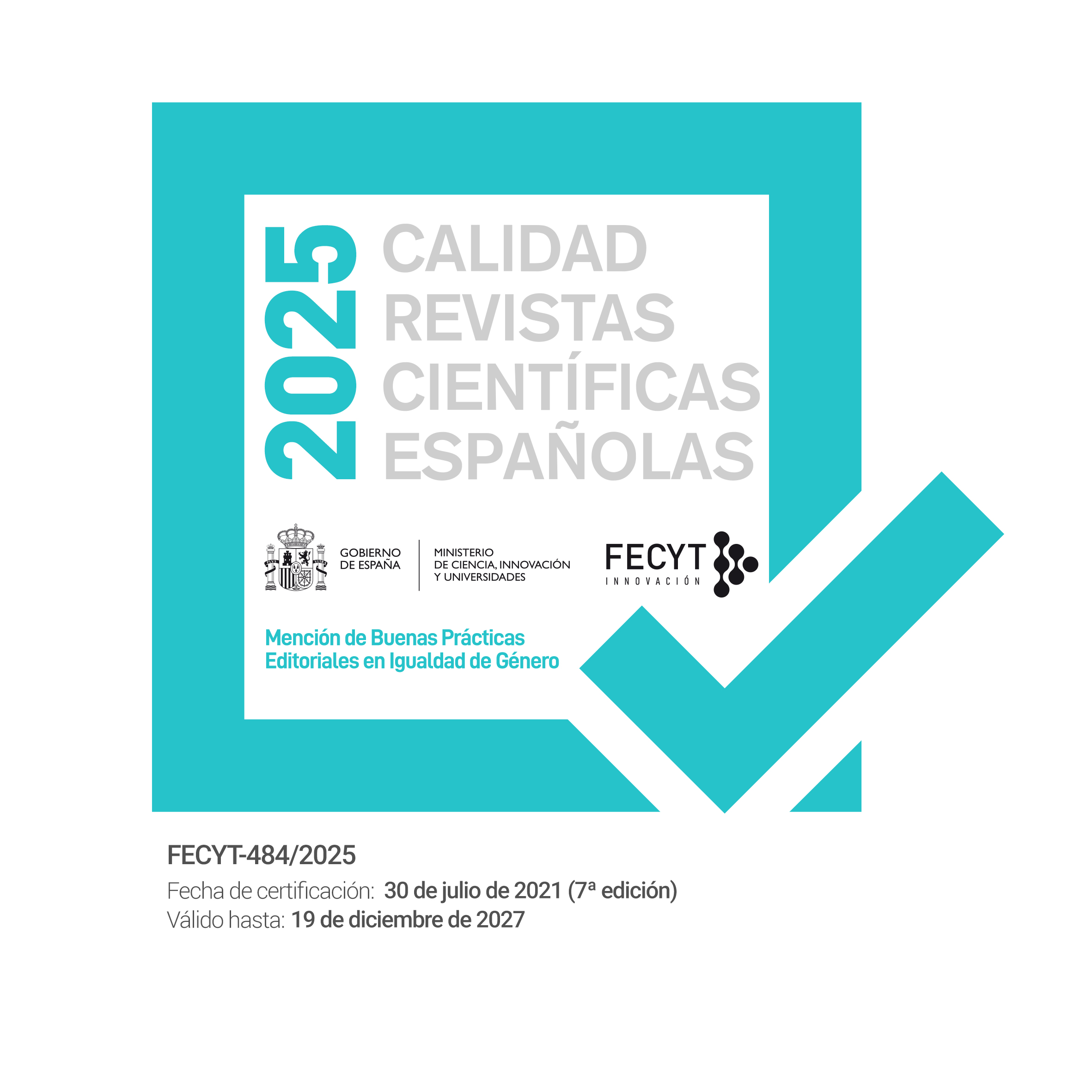EDUCATION FOR DEMOCRATIC CITIZENSHIP: ERNEST SIMON’S IDEALS OF LIBERAL DEMOCRACY AND CITIZENSHIP EDUCATION IN ENGLAND, 1934-1944
DOI:
https://doi.org/10.5944/hme.7.2018.19403Keywords:
Ernest Simon, Liberal democracy, Democratic citizenship, Citizenship education.Abstract
In 1934, with the increasing threats to democracy from such totalitarian nations as Italy and Germany, Sir Ernest Simon (1879-1960), a British industrialist and former Liberal MP, founded the Association for Education in Citizenship (AEC) to advocate reform in citizenship education for
cultivating democratic citizenship. Simon’s efforts and his distinctive approach towards citizenship education, which was different from that of his contemporaries such as Fred Clarke, R. H. Tawney, and Richard Livingstone, have been discussed and acknowledged by historians. Even so, few historians have attempted to grasp Simon’s ideals of liberal democracy and how his democratic ideals were reflected in his views of citizenship education. Due to a lack of connection between Simon’s democratic ideals and his views of citizenship education, previous literature not only fails to explain in what way Simon’s approach towards citizenship was «liberal», but also misinterprets Simon’s ideas of citizenship education. In view of this, the current paper explores Simon’s views of democratic citizenship and his campaign for a new citizenship education in relation to his ideals of liberal democracy in order to provide a better understanding of Simon’s approach towards citizenship education. Moreover, it will help shed some light on the development of citizenship education in twentieth-century England.
Downloads
References
Batho, Gordon. «The history of the teaching of civics and citizenship in English schools». The Curriculum Journal 1 (1), (1990): 91-100.
Beaven, Brad, and John Griffiths. «Creating the exemplary citizen: The chang¬ing notion of citizenship in Britain 1870-1939». Contemporary British History 22 (2), (2008): 203-225.
Bingham, Adrian. «An organ of uplift?: The popular press and political culture in interwar Britain». Journalism Studies 14 (5), (2013): 651-662.
Brett, Peter. «Citizenship education in England in the shadow of the Great War». Citizenship Teaching and Learning 8 (1), (2013): 55-74.
Counts, George S. Dare the School Build a New Social Order?. Carbondale: Southern Illinois University Press, 1978.
Davies, Andrew. «Cinema and broadcasting». In Twentieth-Century Britain: Eco¬nomic, Social and Cultural Change, edited by Paul Johnson, 263-280. Lon¬don: Longman, 1994.
Dent, Harold C. A New Order in English Education. London: University of Lon¬don Press, 1942.
Freathy, Rob J. K. «Ecclesiastical and religious factors which preserved Chris¬tian and traditional forms of education for citizenship in English schools, 1934-1944». Oxford Review of Education 33 (3), (2007): 367-377.
Heater, Derek. «The history of citizenship education in England». The Curricu¬lum Journal 12 (1), (2001): 103-123.
Hulme, Tom. «Putting the city back into citizenship: Civics education and local government in Britain, 1918-45». Twentieth Century British History 26 (1), (2015): 26-51.
Jones, Brendon. «Simon, Ernest Emil Darwin, first Baron Simon of Wythen¬shawe (1879-1960) ». In Oxford Dictionary of National Biography. Consultado el 3 de enero de 2017. http://0-www.oxforddnb.com.catalogue.libraries.london.ac.uk/view/arti-cle/36095.
Livingstone, Richard. «Education for a world adrift». In On Education, edited by Richard Livingstone, 109-232. Cambridge: Cambridge University Press, 1956.
McCarthy, Helen. «Associational voluntarism in interwar Britain». In The Ages of Voluntarism: How We Got to the Big Society, edited by Matthew Hilton and James McKay, 47-68. Oxford: Oxford University Press, 2011.
McCarthy, Helen. «Whose democracy? Histories of British political culture between the wars». The Historical Journal 55 (1), (2012): 221-238.
McCulloch, Gary. «Teachers and missionaries: The left book club as an educa¬tional agency». History of Education 14 (2), (1985): 137-153.
McCulloch, Gary. Educational Reconstruction: The 1944 Education Act and the Twenty-first Century. London: Woburn Press, 1994.
McCulloch, Gary, and Tom Woodin. «Learning and liberal education: The case of the Simon family, 1912-1939». Oxford Review of Education 36 (2), (2010): 187-201.
McKbbin, Ross. Classes and Cultures: England 1918-1951. Oxford: Oxford Uni¬versity Press, 1998
Mill, John S. «Centralization». In Collected Works of John Stuart Mill Vol. XIX (Essays on Politics and Society), edited by J. M. Robson, 579-613. Toronto: University of Toronto Press, 1977.
Norwood, Cyril. The Curriculum in Secondary Schools. London: Association for Education in Citizenship, 1936.
Pring, Richard. «Accountability, assessment and education for citizenship». In Democratic Citizenship in Schools, edited by Jane Brown, Hamish Ross and Pamela Munn, 92-105. Edinburgh: Dunedin, 2012.
Simon, Brian. «Education for citizenship in England». Paedagogica Historica 29 (3), (2006): 689-697.
Stocks, Mary. Ernest Simon of Manchester. Manchester: Manchester University Press, 1963.
Thane, Pat. «The impact of mass democracy on British political culture, 1918- 1939». In The Aftermath of Suffrage, edited by Julie V. Gottlieb and Richard Toye, 54-69. New York: Palgrave Macmillan, 2013.
Todd, Selina. «Flappers and factory lads: Youth and youth culture in interwar Britain». History Compass 4 (4), (2006): 715-730.
Whitmarsh, Guy. «The politics of political education: An episode». Journal of Curriculum Studies 6 (2), (1974): 133-142.
Wong, Y. Y. J. «Continuity and change in citizenship education in England in the twentieth century». PhD diss., University of Liverpool, 1991.
Wright, Susannah. Morality and Citizenship in English Schools. Basingstoke, UK: Palgrave Macmillan, 2017.
Downloads
Published
How to Cite
Issue
Section
License
Authors who publish in Historia y Memoria de la Educación agree to the following terms:
- Authors retain copyright and grant the journal right of first publication with the work simultaneously licensed under a Creative Commons Attribution-NonCommercial 4.0 International that allows others to share the work with an acknowledgement of the work's authorship and initial publication in this journal.
- Authors are able to enter into separate, additional contractual arrangements for the non-exclusive distribution of the journal's published version of the work (e.g., post it to an institutional repository or publish it in a book), with an acknowledgement of its initial publication in this journal.
- Authors are permitted and encouraged to post their work online (e.g., in institutional repositories or on their website) prior to and during the submission process, as it can lead to productive exchanges, as well as earlier and greater citation of published work (See The Effect of Open Access).












